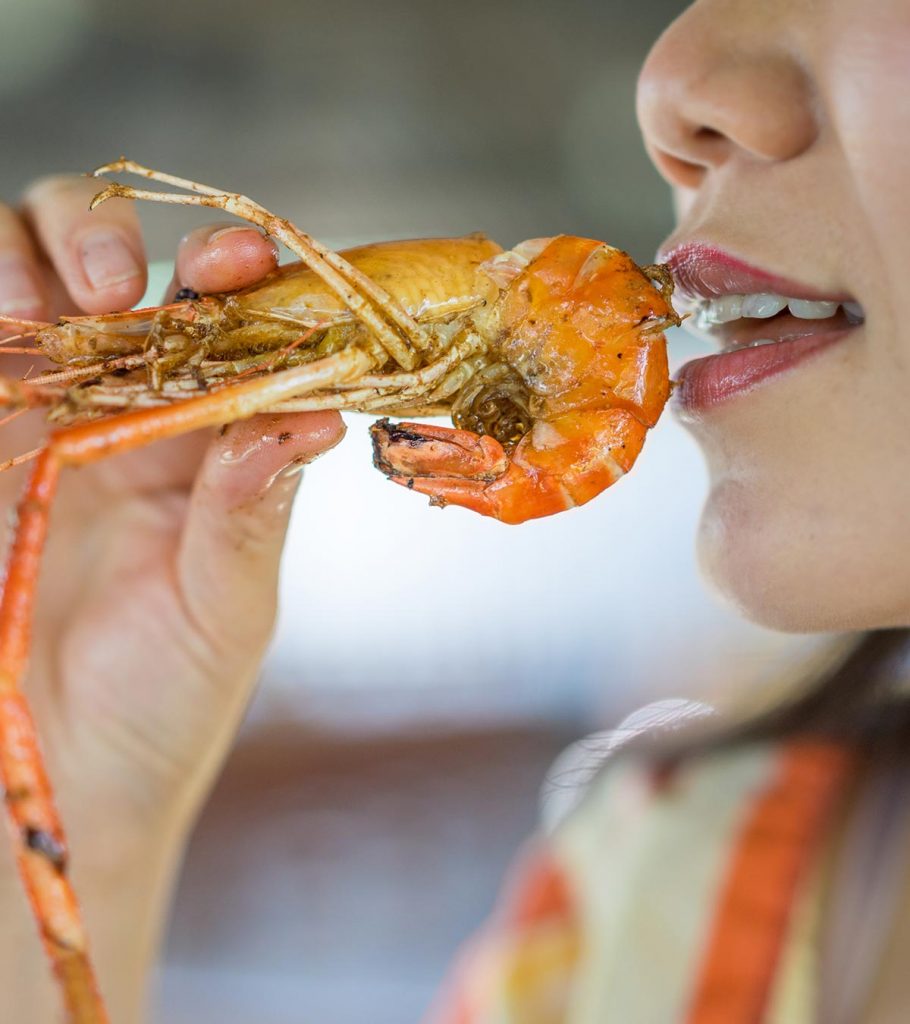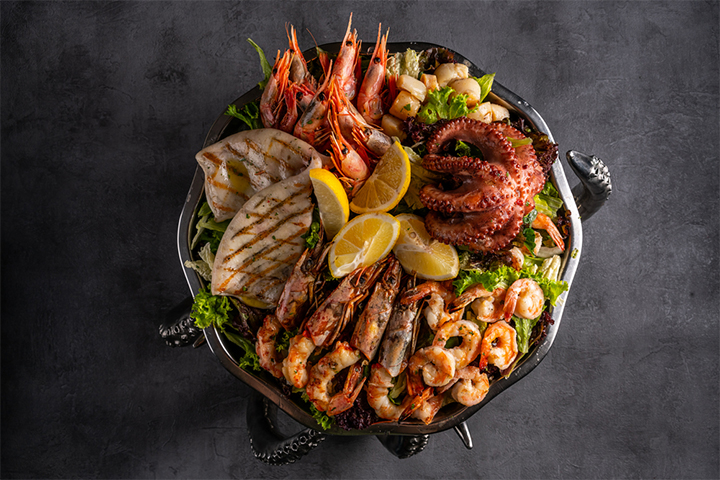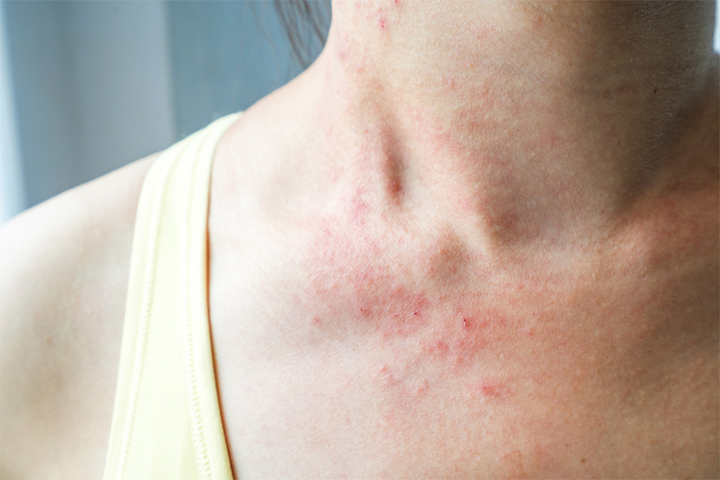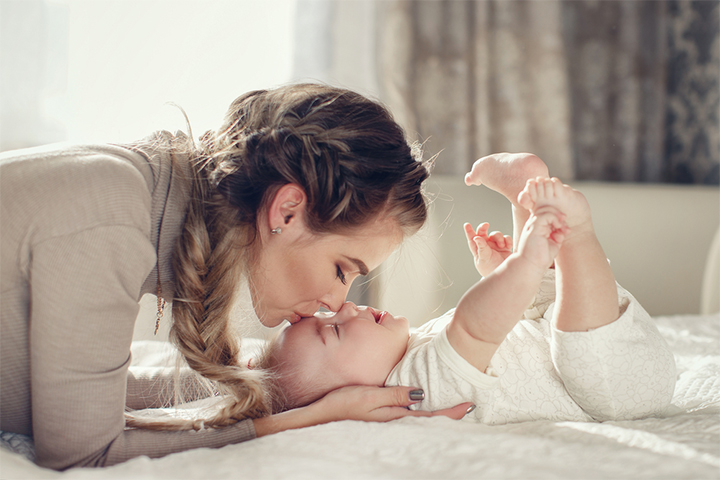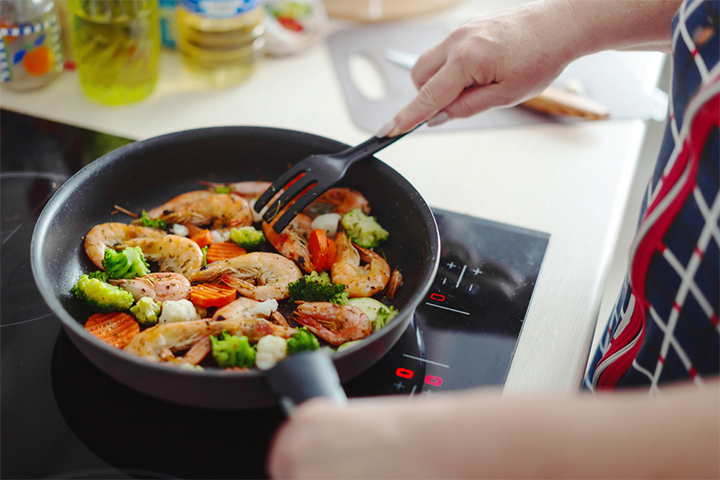You may be a seafood lover but must be avoiding it during pregnancy as you are unsure about its safety. While the benefits and risks of consuming seafood in pregnancy are much discussed, you could be thinking if it is safe to eat shellfish while breastfeeding? Shellfish include oysters, mussels, scallops, crabs, prawns, and lobsters, to name a few. If you relish them and want to know their impact on the baby, keep reading our post to know the safety, risks, and health benefits of eating shellfish during pregnancy.
Can You Eat Shellfish While Breastfeeding?
In most of the cases, a moderate amount of shellfish causes no potential harm to you and your breastfed baby. However, you can be allergic to seafood and suffer from health discomforts including skin rashes or eczema. But, if you have no family history of seafood allergies, you can continue nursing and eating shellfish in your diet.
The main thing to remember is to store and cook the shellfish properly (1). Also, buy shellfish from a credible seller to ensure it contains no harmful toxins, which could raise food safety risks for you and your lactating baby.
Potential Risks Of Shellfish While Breastfeeding
If you have a family history of food allergy, consult your doctor before including shellfish in your diet during breastfeeding. If you are allergic to seafood and especially shellfish, you may notice your feeding baby to develop some allergic symptoms including:
- Skin rashes
- Trouble breathing
- Skin itchiness
- Diarrhea
In such circumstances, consult your pediatrician immediately and stop consuming shellfish. Moreover, if you are eating improperly cooked or stored shellfish, such as undercooked prawns or oysters, you are more prone to suffer from food poisoning. Suffering from such food infection can affect your milk production, and the antibiotics are not at all safe for your feeding infant.
Health Benefits Of Eating Shellfish While Breastfeeding
Seafood has high nutritional value, which can help meet maternal nutrition requirements during lactation. Seafood contains healthy fats, which can benefit you and your baby. Omega-3 and omega-6 fatty acids like EPA and DHA from shellfish can contribute to the proper nervous system development of the nursing infant.
It also contains fair quantities of digestible proteins, amino acids, iron, fatty acids, vitamin B12, and minerals like iodine, sodium, potassium, zinc, copper, and inorganic phosphate, which offers a plethora of health benefits.
Some of the beneficial shellfish lactating mothers can include in their breastfeeding diet includes:
- Salmon
- Mussels
- Trout
- Sardines
- Herring
Shellfish can be a part of your healthy diet, and consuming 8-12 ounces of properly cooked shellfish can improve maternal and infant health.
Consuming shellfish while breastfeeding can be beneficial because it is a good source of iron and vitamin B6, which helps with healthy brain development. Additionally, it contains zinc, which boosts your immune system by fighting bacteria and infections. It is also a low-saturated fat food that can help you maintain a healthy postpartum weight (2).
Points To Remember
- Every human has their own unique risk to allergens. If a mother has an allergic reaction to shellfish it does not necessarily mean the infant will as well. It may increase the risk that the infant will also have food allergies to shellfish, but it will not induce a reaction in the infant,
- Eat 8 – 12 ounces of shellfish every week, to acquire an adequate amount of omega-6 and omega-3 fatty acids. The beneficial element can improve your baby’s visual and cognitive development.
- If the shellfish smells bad, it is a sign that the fish is no longer in edible condition. Discard such fish immediately to avoid the onset of food poisoning.
- Cook all shellfish at elevated temperatures, as undercooked or raw shellfish can cause severe health diseases. Cook lobster and shrimp until the meat inside the hard shell becomes opaque. Cook mussels and oysters until their outer shells are fully open.
Various types of seafood, including crabs, oysters, and shellfish, are known for their delectable taste, increased omega-3-fatty acid, and iron content. However, due to the much-discussed side effects of seafood, you may be wondering if you could consume shellfish while breastfeeding. You may include this seafood in moderation in your nursing diet, provided you follow some crucial precautionary steps and choose only fresh and well-cooked shellfish to eat. Nonetheless, if you experience any allergic reactions in your baby following its consumption, you should seek immediate medical care.
Incorporating shellfish into your diet can have numerous benefits. Shellfish is rich in nutrients and dietary proteins that are beneficial in moderation.
Key Pointers
- If shellfish are consumed in moderation and you have no allergic reactions, it is generally safe to eat while breastfeeding.
- If you have a family history of shellfish allergy, you should consult your doctor before consuming it.
- Consuming shellfish provides energy, boosts immunity, and improves a baby’s visual and cognitive development.
- You must ensure it is well cooked, as undercooked shellfish can cause several severe illnesses.
- Symptoms of shellfish allergy include rashes, itchy skin, breathing difficulties, and diarrhea.
